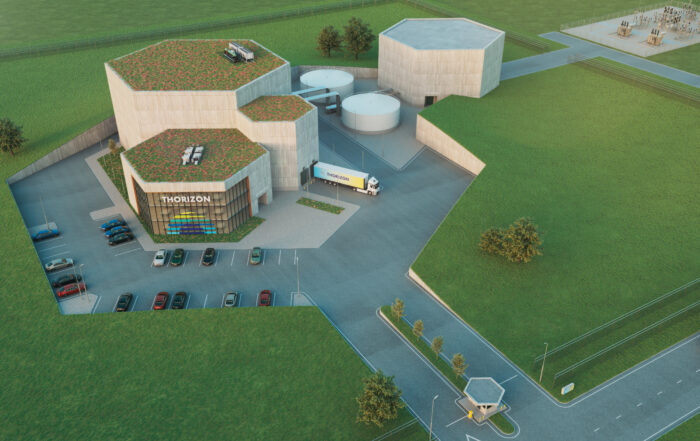October 14, 2022
Press release: Thorizon participates in the MIMOSA project
In a time of heightened environmental concerns and resource scarcity, the closure of the fuel cycle – which reduces the radioactive waste disposal footprint and the need for natural resources – reinforces a sustainable nuclear energy strategy.
This involves reprocessing of spent nuclear fuels (SNFs) and the extraction of elements that can be (re)used. While the EU has the highest share of SNFs reprocessing worldwide – driven by the closed fuel cycle policy in France – most of the spent uranium oxide (UOX) fuels are declared waste today.
The multi-recycling of plutonium is the prime path to achieving nuclear energy’s full potential, and multi-recycling in light-water reactors (LWRs) is already under investigation in France. Fast-spectrum advanced reactors would further optimise such multi-recycling scheme while also offering the additional possibility of multi-recycling other transuranics. In this manner, SNFs become a source of clean energy instead of waste. Such nuclear energy systems would strongly contribute to the decarbonisation of the EU energy mix by allowing additional use of nuclear energy without increase of radioactive waste disposal.
Thorizon
To tackle this challenge, the MIMOSA project (MultI-recycling strategies of LWR SNF focusing on MOlten SAlt technology), launched in June 2022 and funded by the Euratom Research and Training Programme, will devise and demonstrate an integrated multi-recycling strategy of plutonium (Pu) and uranium (U) combining multi-recycling options in LWRs with recycling Pu and other transuranics (today considered as waste) in fast molten salt reactors (MSRs) using chloride salt. In this type of reactor, the fuel is dissolved in the salt circulating through the core, with such liquid form of fuel eliminating the major technological bottleneck of refabrication of solid fuels with high content of transuranics. To optimise costs and risks, the proposed strategy will also take advantage of existing European infrastructures such as the Orano reprocessing plant in La Hague (France).
Today, the maturity of such MSRs is low. For this reason, MIMOSA will focus on the demonstration of several key aspects of technical feasibility and performance that will push this advanced technology beyond the current state of the art and accelerate its deployment.
The MIMOSA consortium, led by nuclear fuel cycle service provider Orano, brings together twelve partners from four European countries, each bringing unique and complementary expertise to address the issue: industrial multi-recycling of Pu (Orano, EDF); MSR research and innovation (CNRS, Centrum výzkumu Řež / Research Centre Řež, NRG, Delft University of Technology); provision of innovative technologies (DIFFER – Dutch Institute for Fundamental Energy Research, Schunk Group); technical-economic assessment, scenario analysis, safety and security, and non-proliferation (Nuclear-21); Pu and minor actinide fuels (European Commission Joint Research Centre); development and exploitation of MSRs (Thorizon); managing and dissemination of collaborative research (ARTTIC ).
“With the MIMOSA project, we are building a European network centred on molten salt reactors and a community that believes in the contribution of this disruptive technology to the sustainability and acceptability of tomorrow’s nuclear industry,” explains Isabelle Morlaes, MIMOSA project coordinator and Senior Vice President, MSR initiatives Coordination at Orano.
– End of press release –
For more information about the MIMOSA project, contact the project office.

